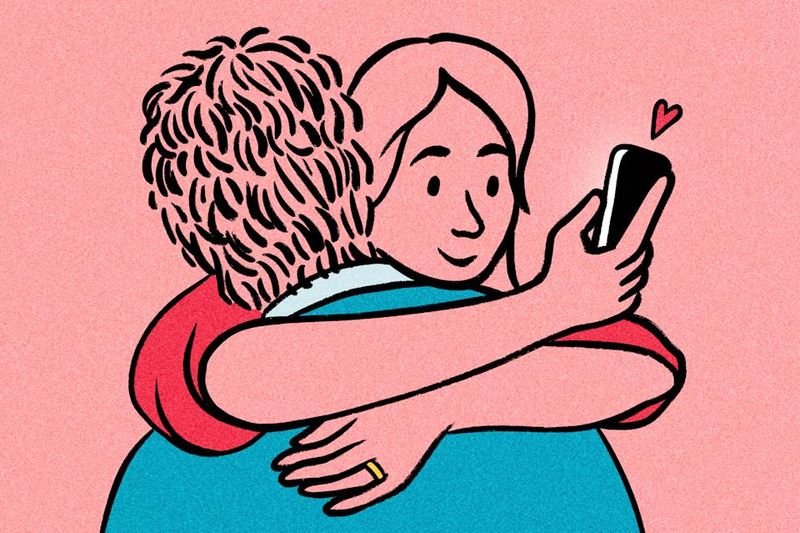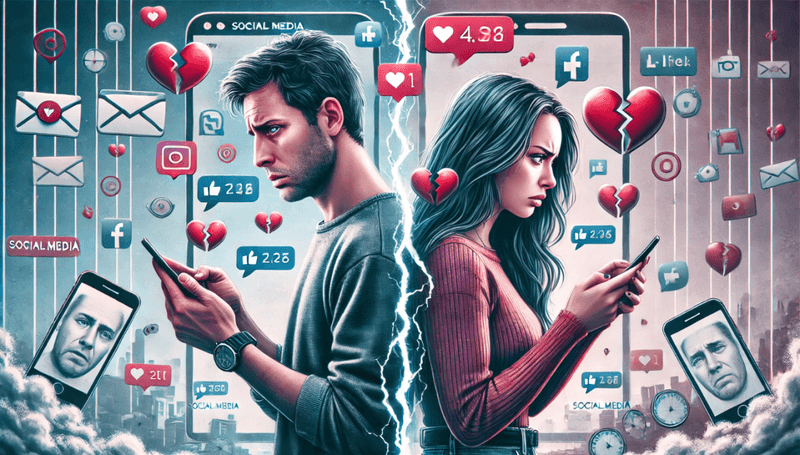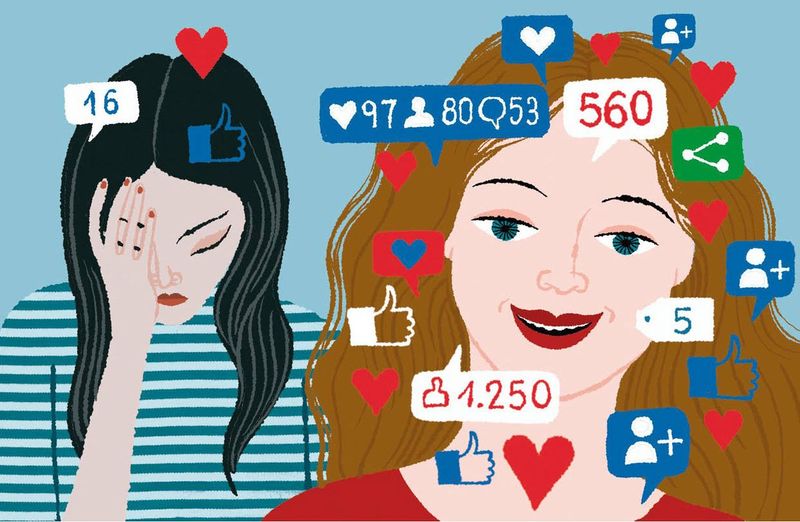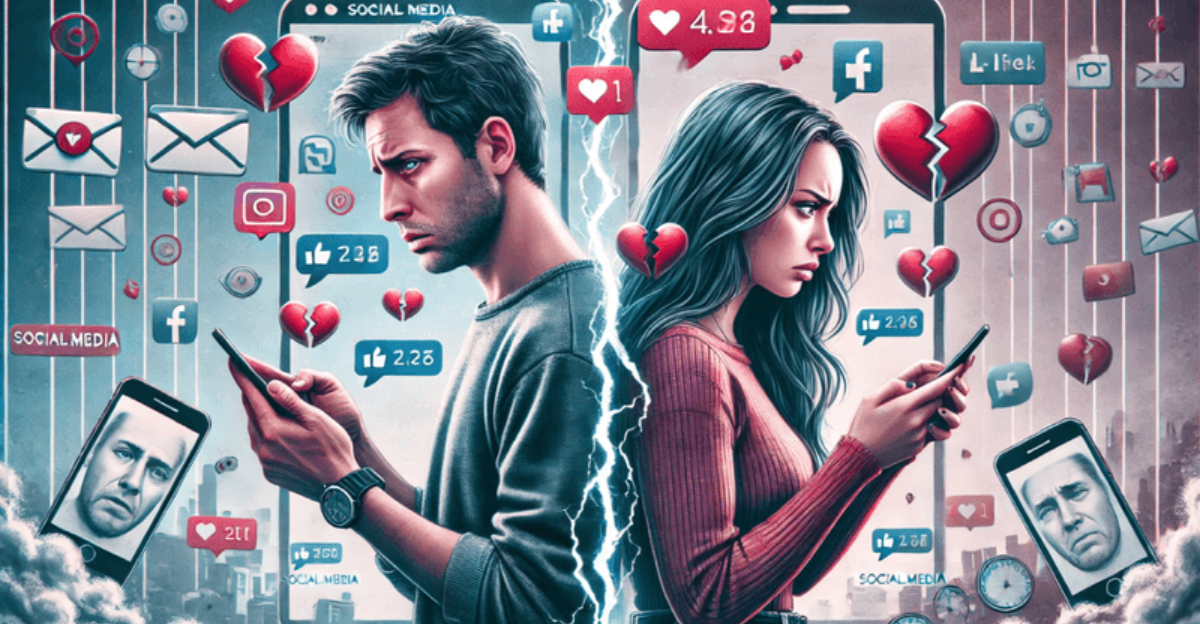14 Ways Social Media Is Causing Problems In Your Relationships
Look, I love a good scroll as much as the next person — cat videos, memes, a little humble-bragging on vacation pics? Guilty. But somewhere between the endless DMs and the curated highlight reels, I started noticing something… off.
Social media, for all its glossy connection vibes, was quietly messing with my relationships. Not in a dramatic, burn-it-all-down way—more like slow drips of tension, comparison, and “wait, why didn’t they like my post?” energy.
It’s wild. One minute, I’m laughing at reels with my partner — the next, I’m side-eyeing their likes and wondering who that heart-eyed comment is from. This stuff creeps in, and suddenly you’re not just sharing your life — you’re performing it, decoding it, and low-key stressing over it.
So yeah, while social media can bring us closer, it can also pull us apart in ways we don’t even see coming. I’ll tell you about the 14 sneaky ways it’s been sabotaging my connections — without me even realizing it.
1. Comparison and Unrealistic Expectations

Ever find yourself scrolling through social media and feeling like everyone else has it all figured out? Those curated, picture-perfect posts can make you question your own relationship.
Suddenly, you’re comparing your partner to someone else’s highlight reel. It’s like trying to measure up to a mirage. This constant exposure to filtered realities creates a toxic cycle. You start focusing on what’s absent rather than appreciating what’s present.
Consider the pressure that builds when you’re bombarded with images of exotic vacations, grand gestures, or flawless selfies. What’s often missed in these snapshots is the untold story—the arguments, struggles, and compromises that don’t make it online.
In reality, no relationship is perfect. It’s about finding contentment in the authentic, messy, and beautiful connection you share with your partner.
2. Increased Insecurity and Jealousy

Social media has a sneaky way of turning simple interactions into seeds of doubt. You know that uneasy feeling over a comment or a like on your partner’s post? It’s almost as if a harmless emoji becomes a silent threat.
Think about the times you’ve noticed your partner engage with someone you don’t know. Maybe it’s an old friend or a co-worker, but those feelings of jealousy start creeping in. You may begin to question their intentions, even if logically you know there’s nothing to worry about. It’s easy for these little doubts to spiral into bigger issues.
The real enemy here is often our own imagination. Misinterpretations can lead to unnecessary conflicts, damaging the foundation of trust and intimacy. Open communication is key to squashing these fears before they grow.
3. Distraction and Reduced Quality Time

Remember those evenings spent talking for hours, lost in your own little world? Now, replace them with screens and endless scrolling. Social media can steal away those cherished moments, without you even noticing. It’s like being together but miles apart.
The lure of social media is powerful. Notifications, updates, and new content constantly vie for your attention. It pulls you away from the here and now. What starts as a quick check can easily become an hour of mindless scrolling. Before you know it, an evening meant for connection has slipped away.
This digital distraction can lead to a gradual erosion of quality time. To combat this, setting boundaries is crucial. Designating tech-free times helps rekindle genuine interactions.
4. Phubbing (Phone Snubbing)

Have you ever been in the middle of a conversation, only to realize that your partner’s attention is glued to their phone? This phenomenon, known as “phubbing,” is more common than we like to admit. It sends a silent message that what’s happening on the screen is more significant than the person sitting right beside you.
It makes you feel invisible. That way, the emotional connection and trust that are vital for a healthy relationship starts to fade away. It might seem trivial, but over time, these small moments of neglect accumulate. That creates a chasm between you and your partner.
Make a conscious effort to be present. Put the phone down during meals or conversations and show your partner that they matter.
5. Privacy Invasion

Sharing is the norm, but oversharing? That’s where things get tricky. Imagine finding out that an intimate moment or personal issue has been publicized without your consent. It feels like a betrayal, right? It’s a crossing of invisible boundaries that protect your shared world.
When one of you shares details online that the other considers private, it leads to conflicts and mistrust. The digital world has blurred the lines between what’s ours and what’s everyone’s. A photo, a status update, or even a comment can expose vulnerabilities that were never meant for public scrutiny.
Set clear boundaries on what’s acceptable to share and what should remain private. Respecting each other’s comfort levels can prevent mistakes that are dangerous for your relationship.
6. Facilitation of Infidelity

What starts as a harmless chat can quickly escalate into emotional or even physical infidelity. The accessibility and anonymity provided by these platforms make it easier to lose sight of what matters. It’s like a forbidden fruit that tempts individuals into secretive interactions.
Consider the ease of rekindling old flames or striking up new flirtations, all under the guise of online friendship. It creates a false sense of security and makes it seem as though your actions are hidden and without consequence.
However, the aftermath is devastating — shattered trust and deep emotional pain. Transparency and honesty are key to preventing these digital indiscretions.
7. Decreased Empathy

The digital age has revolutionized communication, but it’s come at a cost. The overreliance on texting and social media suffocates empathy, as face-to-face interactions dwindle. When you’re behind a screen, it’s easy to forget there’s a real person on the other side.
The lack of non-verbal cues — like tone, facial expressions, and body language — can lead to misunderstandings. A message meant to be lighthearted might come across as insensitive or dismissive. That creates unnecessary conflicts.
Prioritize real-life interactions. Whether it’s a simple conversation over coffee or a heartfelt discussion in person, these moments foster genuine understanding and connection.
8. Unwanted Attention

Sharing bits of your life on social media can sometimes draw attention you never anticipated. It’s flattering until it’s not. You know when you receive comments or messages that make you or your partner uncomfortable? This stirs feelings of jealousy and insecurity.
While you may enjoy sharing your moments, the reactions from others can be unpredictable. A seemingly innocent post can attract comments that cross the line. That leads to tension within your relationship. It’s as if your private life is suddenly on display and invites opinions and interactions you never asked for.
Manage privacy settings and be mindful of what you share. Discuss with your partner what feels appropriate and what doesn’t, so that both of you are comfortable with your online presence.
9. Unrealistic Relationship Standards

You see couples smiling in exotic locales, celebrating grand gestures, and living in perpetual bliss. It’s easy to fall into the trap of believing your relationship should mirror these idealized versions. But that way, you set standards that are unattainable.
You find yourself questioning the health of your own relationship. Funny how easy it is to forget that social media often represents a polished version of reality.
Real relationships are built on authenticity, compromise, and understanding. Embrace the unique dynamics of your partnership! Appreciate the highs and navigate the lows together.
10. Reduced Face-to-Face Interaction

The art of face-to-face communication is slowly fading. Social media and online messaging have replaced many of the in-person interactions that are crucial for building emotional bonds.
When you choose the convenience of digital communication, you miss out on the nuances that make relationships rich. Eye contact and body language are irreplaceable. Over time, this leads to feelings of loneliness, despite being constantly “connected.”
Schedule regular dates or activities where phones are put away. It allows you to fully engage with each other. This commitment to real-life connection can reinforce the emotional closeness and understanding that every relationship needs.
11. Increased Conflict and Miscommunication

Ever had a text message taken the wrong way, sparking an unnecessary argument? The lack of context in online communication can lead to conflicts. Without the nuance of tone or expression, intentions can easily be misinterpreted.
Social media interactions lack the depth of face-to-face conversations, where empathy and understanding are more easily communicated. A casual remark online can snowball into a full-blown argument, because it was read in a tone never intended.
Make an effort to discuss important matters in person or over a call. This approach maintains harmony in your relationship.
12. Addiction and Dependency

This is something that is still a rare topic in the broad public but it is very concerning. Social media causes dependency and draws individuals away from real-life relationships. The endless stream of content creates a false sense of connection which diverts attention from the people who matter most.
This manifests as a priority shift, where online interactions take precedence over face-to-face engagement. Over time, your partner feels sidelined in favor of a digital world.
Establish healthy boundaries around social media use. Designate times for unplugging and focusing on real-world connections. You’ll see the change for the better pretty soon.
13. Stalking Behavior

The ease of accessing information online is a common cause for a behavior referred to as “social media stalking.” This involves obsessively monitoring a partner’s activities, driven by insecurity or mistrust. While it seems harmless at first, this quickly escalates. And it’s not good, believe me.
This not only invades your partner’s privacy but also undermines the foundation of trust in your relationship. Constantly checking his online presence creates a cycle of suspicion and paranoia. You find yourself overanalyzing every post, comment, or like in search for clues of infidelity or dishonesty.
Discuss any insecurities and work together to build trust. Recognize that a healthy relationship is based on mutual respect and understanding, not on constant surveillance.
14. Pressure to Maintain a Perfect Image

There’s an unspoken pressure to present a flawless image of your relationship. Posting the right photos and showcasing only the happiest moments can become a burden. It’s as if you’re curating an online gallery that doesn’t quite match reality.
The reality of everyday life gets overshadowed by the need to appear perpetually happy and successful. This pressure leads to stress and dissatisfaction, as you strive to live up to the idealized portrayal you’ve created.
Remember, authenticity is more valuable than perfection. Embrace the challenges and triumphs that define your journey together. Let go of the need to maintain a perfect image. So, you can finally breathe deeply and live life to the fullest!







